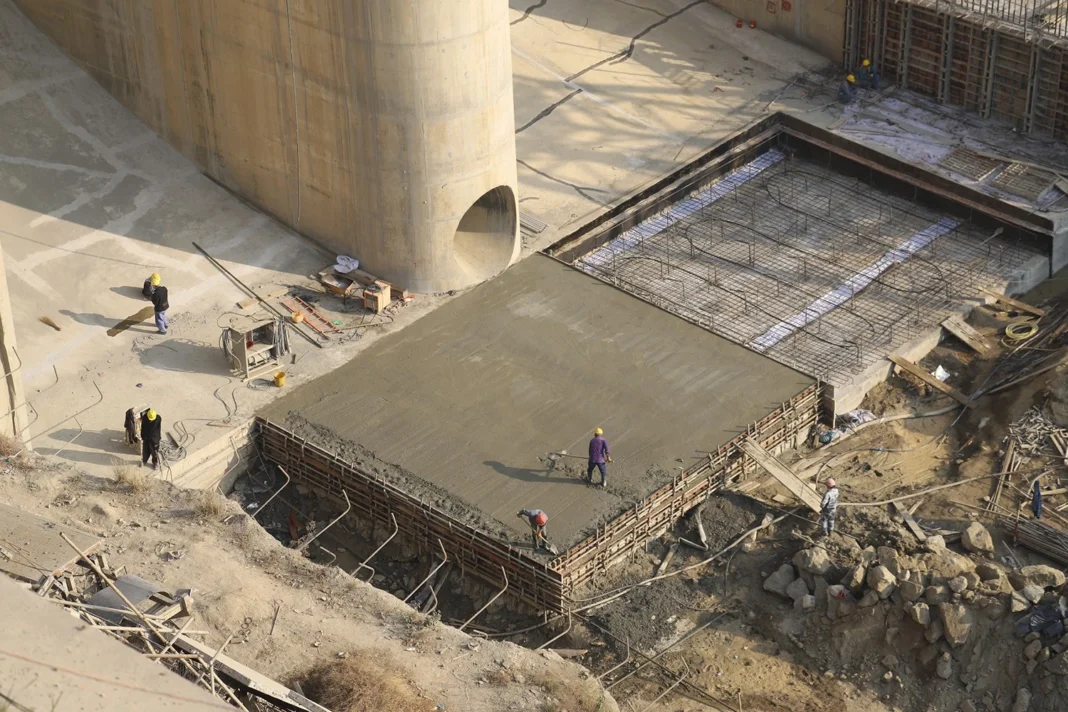The highlights this week: China and Pakistan face potential setbacks in their long-standing bilateral relationship, South Asia rallies aid and solidarity in the wake of the devastating earthquake in Turkey, and a somber Sri Lanka marks 75 years since independence.
The slowing pace of CPEC projects stems in part from Pakistan’s ongoing economic crisis—it increasingly cannot afford infrastructure loans—as well as Beijing’s own economic slowdown. When Sharif visited Beijing last November, he formally requested a rollover of $6.3 billion in debt. China hasn’t indicated if it will grant the request, even as it announced a two-year debt moratorium for Sri Lanka. (Pakistan’s finance minister has claimed that China will roll over more than $4 billion in Pakistani debt, but Beijing has not confirmed this.)
But the infrastructure slowdown is just one sign of a potential setback in China-Pakistan ties. On the diplomatic stage, observers noted last year that China didn’t oppose India’s move to exclude Pakistan from a high-level meeting on the sidelines of a virtual so-called BRICS summit that included other emerging economies. In the past, China—which hosted the event—might have stepped in to help Pakistan. Some analysts have argued that Beijing views the current Pakistani government as too unstable to be a viable partner.
Chinese officials are also increasingly worried about security risks in Pakistan, which is experiencing a concerning uptick in terrorism. A few recent attacks have targeted Chinese investments and nationals in Pakistan—including at a dental clinic in Karachi last September, a Confucius Institute in Karachi last April, and a luxury hotel in Baluchistan hosting a senior Chinese delegation in 2021. After Sharif met Chinese President Xi Jinping in Beijing last November, a Chinese foreign ministry statement noted that Xi had “expressed his great concern about the safety of Chinese nationals in Pakistan.”
However, it would be misguided to think that the China-Pakistan relationship is in serious trouble. Chinese loans keep flowing into Pakistan—although not all for infrastructure projects. Pakistan received nearly $22 billion in short-term loans from China between 2018 and last summer, most for balance of payments relief. This shows Beijing is willing to try to ease Islamabad’s economic stress. Last June, China authorized a new $2.3 billion loan at a discounted interest rate.
China’s own economic struggles mean that sustained support at this level is no guarantee, especially as Pakistan’s crisis continues to worsen. Last month, inflation reached its highest level since 1975; its foreign reserves currently cover less than three weeks’ worth of imports. On Thursday, Islamabad announced that the most recent round of talks with the International Monetary Fund had failed to produce an agreement to release new funds.
China may prefer to engage with a more stable government in Islamabad. But then again, it has a rapport with Sharif’s family; the current prime minister’s brother Nawaz Sharif also served as prime minister when CPEC was formally launched. The previous government led by Imran Khan didn’t endear itself to China either, calling for a review of past CPEC agreements in the name of anti-corruption efforts. At any rate, Pakistan’s powerful military has the final word on policy decisions regarding key partners, such as China.
Current geopolitics make a continued alliance between China and Pakistan inevitable. Growing U.S.-India security ties unite Beijing and Islamabad in concern over their common rival, New Delhi. Increasing U.S.-China competition puts limits on cooperation between Pakistan and the United States, extending Islamabad’s reliance on Beijing for economic and military assistance. Pakistan’s own push for a greater partnership with Russia comes amid a deepening China-Russia alliance.
Even the closest partnerships experience bumps, but the China-Pakistan relationship has guardrails to keep it from veering too far off track.
foreignpolicy.com

